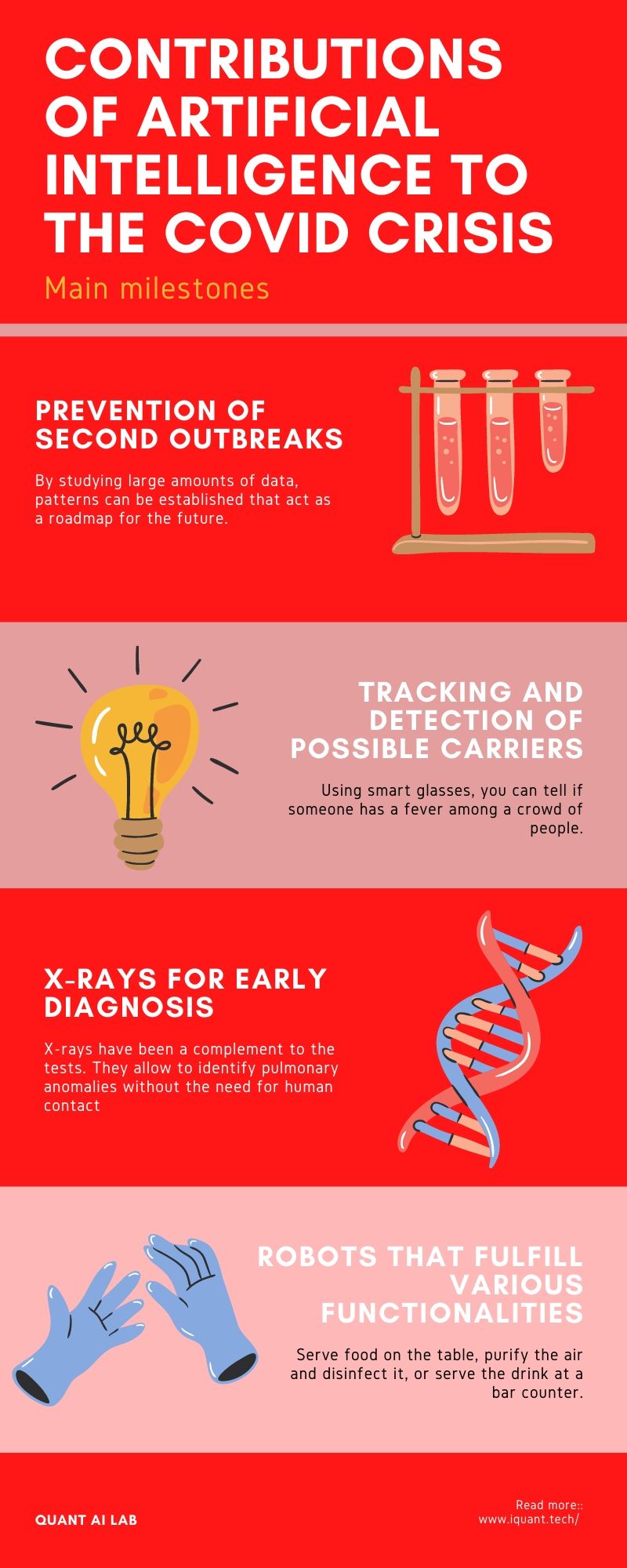Artificial Intelligence against COVID-19
Is Artificial Intelligence the key to the future after COVID-19?
A situation as the one we are currently experiencing serves to, among other things, highlight certain advances: such as Artificial Intelligence. The control and study of the coronavirus is promoting the use of this technology to fight the virus and try to limit the effects of the pandemic.
Artificial intelligence has been working for months without rest to be able to offer solutions that make life easier for us. One of its main objectives is that we can overcome the limitations imposed by a virus about we haven´t enough information.
The main engine of artificial intelligence is “Machine Learning”. It allows processing large amounts of data (Big Data) to detect patterns in them over time. This allows us, among others, to draw a possible roadmap for the future. Another of its uses may be, for example, drawing conclusions such as the number of deaths from COVID-19 in a certain sector of the population.

IA Contribution
Another of the uses that artificial intelligence has had in terms of virus control has been the possibility of tracking and detecting possible carriers: using smart glasses, for example, I have detected if someone had a fever in an agglomeration.
Another of his contributions has been at the time of taking test. Increasing the number of tests has become a priority for the health authorities, however this required a lot of staff and time. Not to mention the risk … AI offers help with other tests: X-ray analysis to detect lung abnormalities. Thanks to this, diagnoses of possible positives can be offered much faster and without the need for human contact.
Or the new robots that are already available in different countries and perform functions as different as serving food at the table or purifying the air and disinfecting it. This (also AI work) has reduced contact and therefore the risk of transmission.
Despite the fact that the use of artificial intelligence has been received with a certain degree of reluctance by the health sector, as the pandemic has spread, the importance of these tools has been highlighted. Its role has been determined to control the spread of the virus.
For all this and for much more (geolocation tools, health robots, etc.) artificial intelligence is playing a key role in the fight against covid. Possibly this could translate into an increase in their presence once all this happens not only in all health systems around the world, but in our day to day and in our work routines.
AXPE and Artificial Intelligence
From AXPE Consulting we know the importance of this type of tools, that is why a few months ago we launched a new unit focused on offering Artificial Intelligence solutions, QUANT Al Lab
From this platform we intend to concentrate our efforts on highly complex mathematical models that allow creating predictive models, machine learning and statistical inference, among others.


